Starting an online business or revamping an existing store is an exciting journey, but one of the first crucial decisions you’ll face is choosing the best e-commerce platform.
The platform you select will play a key role in how you sell, market, and grow your business, so it’s essential to choose wisely.
With so many options out there, how do you know which one is the best fit for your needs?
This article will dive into the best e-commerce platforms for your online store.
11 Best E-Commerce Platforms
1. Shopify
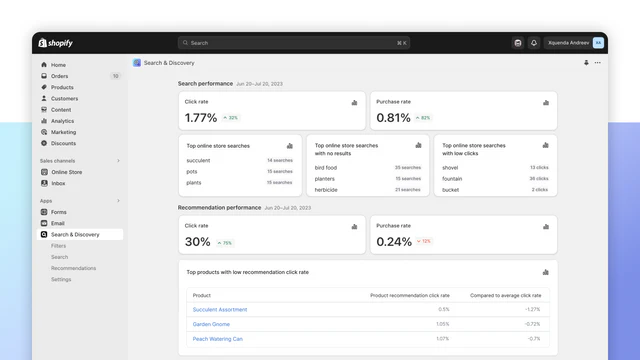
If you’re looking for a user-friendly, comprehensive solution that covers everything from product listing to payment processing, Shopify is a top contender. It’s designed to help businesses of all sizes sell online, in-person, and through social media channels.
Why Shopify Stands Out
- Ease of Use: Shopify’s intuitive interface allows beginners to launch an online store quickly.
- Omnichannel Selling: Shopify simplifies multi-channel selling, allowing businesses to reach customers on platforms like Instagram and Facebook with ease.
- Robust Features: It includes built-in tools for inventory management, order processing, and customer tracking.
- Scalable: Shopify can expand with you whether you’re just starting or already have a thriving online store.
Drawbacks
- Monthly Fees: Shopify’s plans start at $29/month, which can add up over time.
- Transaction Fees: If you don’t use Shopify Payments, you’ll incur additional transaction fees.
2. WooCommerce
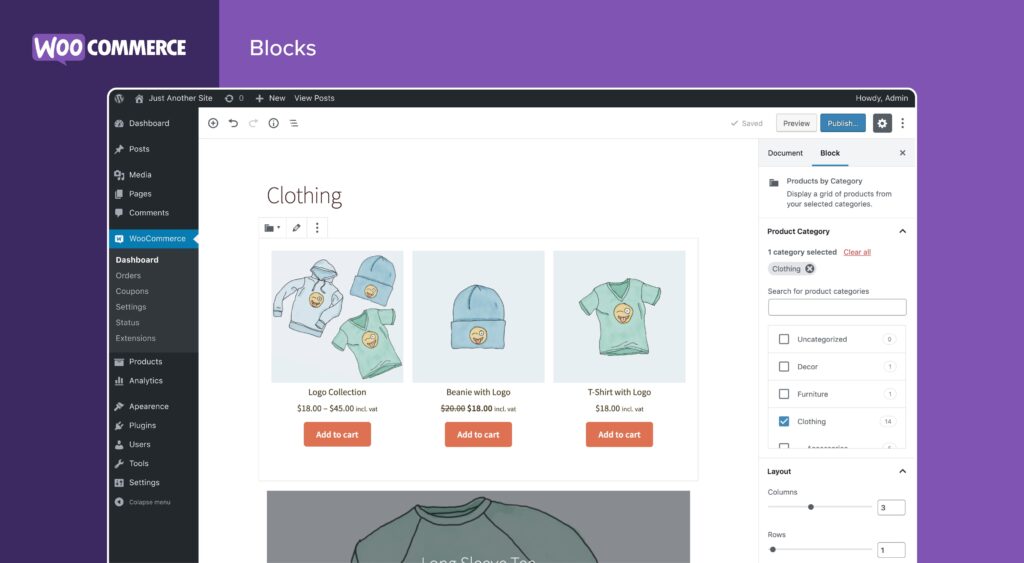
For those who already have a WordPress website or prefer flexibility, WooCommerce is a popular e-commerce plugin. It seamlessly integrates with WordPress, turning your site into a fully functional online store.
Why WooCommerce Stands Out
- Free to Use: WooCommerce is free to install, though you’ll need to pay for hosting, themes, and additional features.
- Customization: Since it’s open-source, WooCommerce offers incredible flexibility for customizing your store’s design and features.
- Large Community: WooCommerce has a massive user base, meaning there are plenty of tutorials, plugins, and support available.
Drawbacks
- Requires WordPress: This may not be the best option if you don’t already use WordPress.
- Maintenance: You’ll need to handle updates and technical maintenance yourself, which might be challenging for beginners.
3. BigCommerce
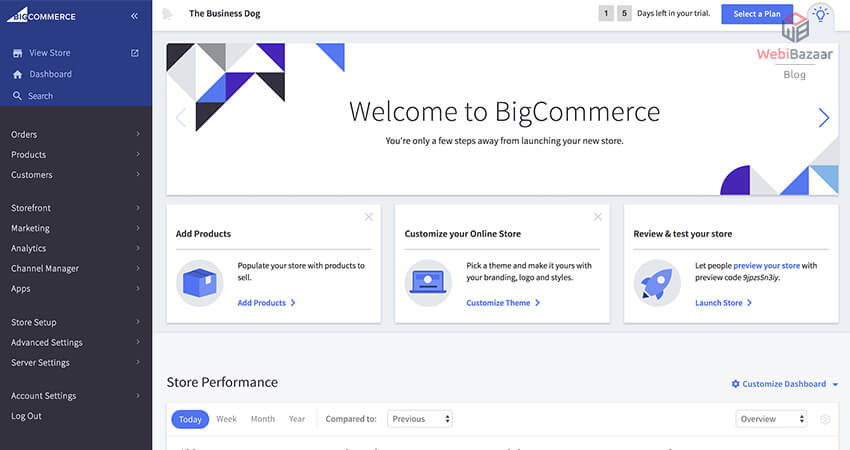
BigCommerce is another strong choice for businesses looking to scale. It’s a cloud-based platform that offers many advanced e-commerce features without the complexity of other platforms like Adobe Commerce.
Why BigCommerce Stands Out
- Built for Growth: With multi-currency and multi-language selling support, BigCommerce is great for businesses looking to expand internationally.
- No Transaction Fees: Unlike Shopify, BigCommerce doesn’t charge transaction fees on its plans.
- SEO Tools: BigCommerce includes built-in SEO features designed to improve your store’s visibility and ranking on search engines.
Drawbacks
- Learning Curve: While more complex than Adobe Commerce, BigCommerce may require some time to get used to.
- Pricing: Pricing plans start at $39/month, which can be a bit high for starting businesses.
4. Wix

If you’re a small business or just starting, Wix offers a simple, affordable e-commerce platform that still provides all the essential tools you need to run an online store.
Why Wix Stands Out
- Drag-and-Drop Editor: Wix’s website builder allows you to create your store by dragging elements into place, making it beginner-friendly.
- Affordable Plans: Pricing starts at just $23/month, making it a budget-friendly option for new store owners.
- Customizable Templates: Wix provides a diverse range of templates that can easily be tailored to reflect your brand’s unique identity.
Drawbacks
- Limited Features: While Wix offers excellent tools for small businesses, it might not be as feature-rich as other platforms for larger, more complex stores.
- Scaling Issues: As your business grows, you might find Wix less flexible than other platforms like Shopify or BigCommerce.
5. Adobe Commerce
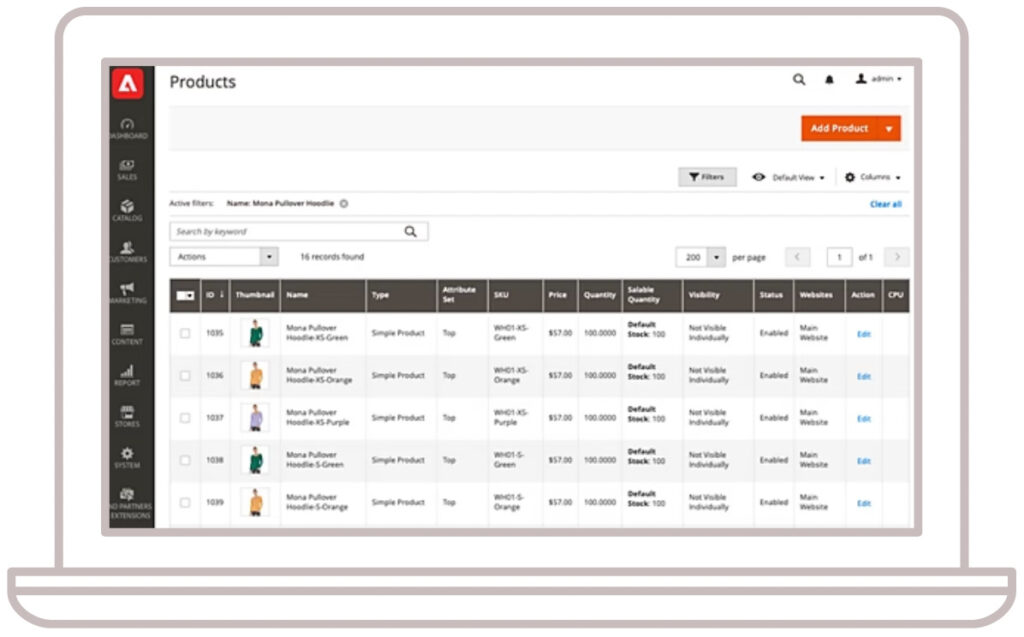
Adobe Commerce (formerly Magento) is an open-source platform that offers deep customization and flexibility, making it ideal for large businesses with complex needs.
Why Adobe Commerce Stands Out
- Customization: Adobe Commerce offers endless customization options, which makes it perfect for businesses with unique requirements.
- Scalability: Adobe Commerce can handle large product catalogs, high-traffic volumes, and complex store structures.
- Powerful Tools: From advanced SEO to multi-store management, Adobe Commerce has tools to help businesses grow and thrive.
Drawbacks
- Steep Learning Curve: Setting up Adobe Commerce requires technical expertise, which might be better for beginners.
- Costly: While Adobe Commerce itself is free, the costs of hosting, maintenance, and developer support can be significant.
6. Squarespace

Squarespace is an easy-to-use, all-in-one platform known for its beautiful, designer-quality templates. It’s perfect for small businesses or individuals who want to create a visually stunning online store without much technical knowledge.
Why Squarespace Stands Out
- Design Flexibility: Squarespace offers high-quality, customizable templates that look great across all devices. It’s especially popular with those in creative industries due to its sleek, modern design options.
- User-Friendly: Its drag-and-drop editor is intuitive, making it easy for non-techies to build their store.
- Cost-Effective: Affordable pricing plans that include hosting and security.
Drawbacks
- Limited E-commerce Features: Unlike Shopify or BigCommerce, Squarespace offers fewer advanced e-commerce tools and integrations.
- Scalability: While it’s perfect for small businesses, it might need to scale better for larger enterprises with complex needs.
7. Big Cartel

Big Cartel is designed for small creators and independent artists. It provides an easy-to-use interface for selling unique products online.
Why Big Cartel Stands Out
- Simple Setup: Big Cartel is extremely easy to set up, making it ideal for small shops or creators looking to get online quickly.
- Affordable: It offers free plans with limited features and affordable paid plans.
- Focused on Niche Markets: Best for businesses that sell handmade, unique, or custom products.
Drawbacks
- Lacks Advanced Features: Big Cartel offers only basic tools and lacks advanced features like abandoned cart recovery and robust SEO capabilities.
- Limited Growth: Big Cartel may not offer the necessary features to scale effectively as your business grows.
8. Square Online
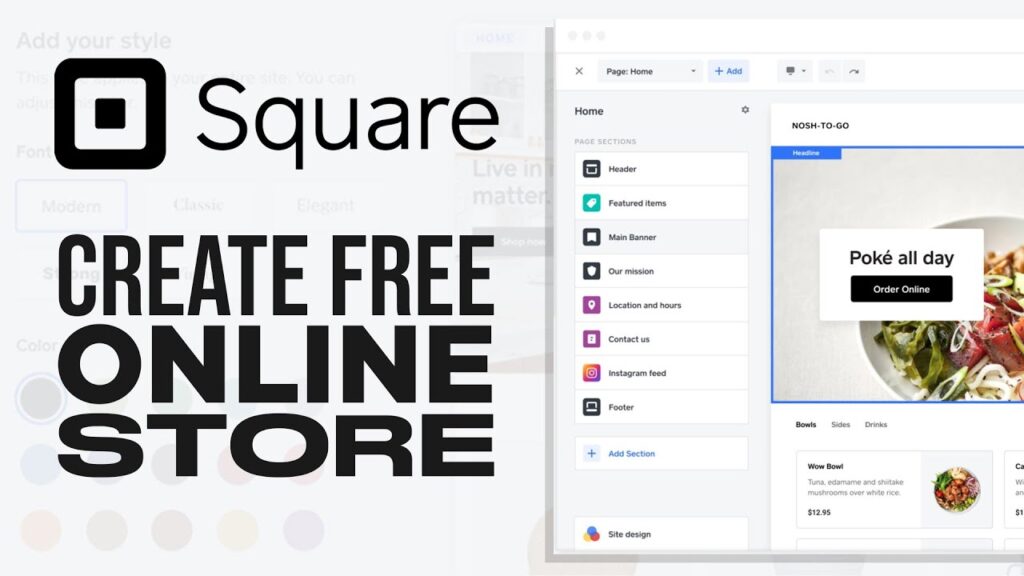
Square Online seamlessly integrates with Square’s point-of-sale (POS) system, making it a great choice for businesses managing both online and in-person sales.
Why Square Online Stands Out
- Seamless POS Integration: Easily syncs your online store with your physical location for real-time inventory updates and order management.
- Simple Setup: Perfect for businesses looking for an easy, low-maintenance way to sell online.
- Cost-Effective: Offers a free plan and low fees for small businesses.
Drawbacks
- Basic E-commerce Features: While it’s simple and cost-effective, Square Online lacks the advanced features needed for larger e-commerce operations.
- Limited Customization: The design options and customization are not as flexible as those on other platforms, such as Shopify or WooCommerce.
9. Shift4Shop
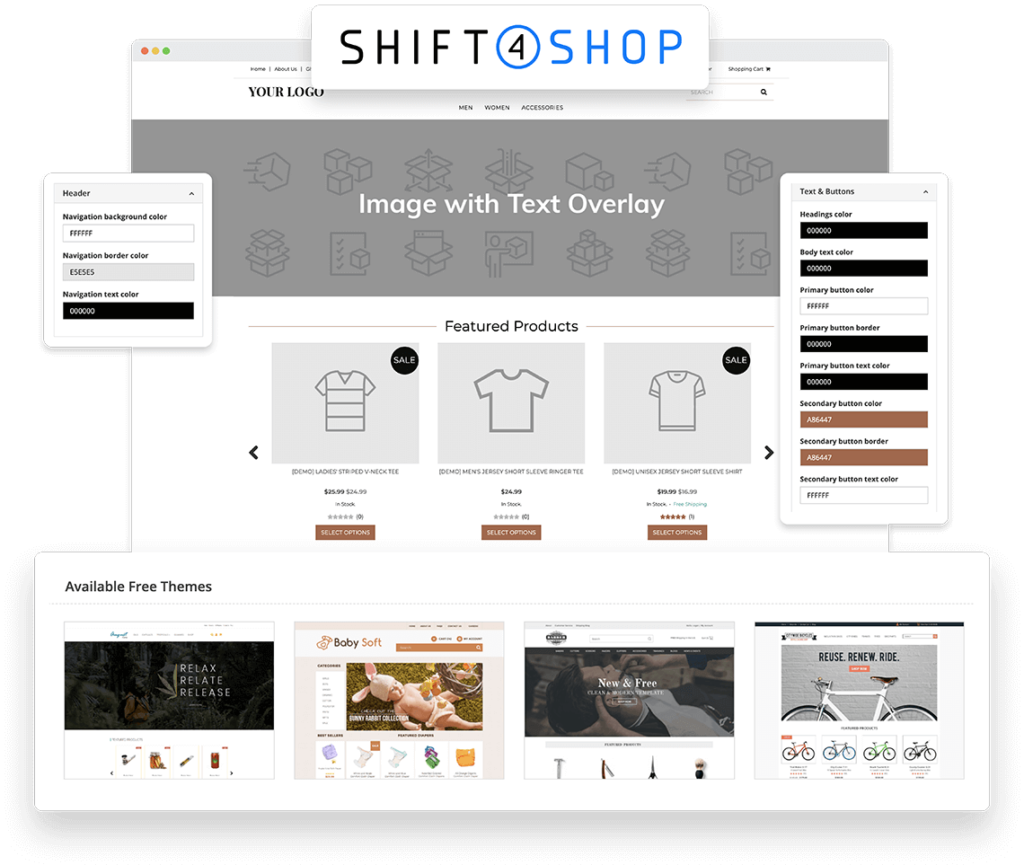
Shift4Shop (formerly 3dcart) is a powerful e-commerce platform that offers flexibility, extensive customization options, and a host of built-in features, making it ideal for businesses aiming for growth.
Why Shift4Shop Stands Out
- Comprehensive Features: Built-in tools for inventory management, order processing, and customer tracking streamline your operations.
- Advanced SEO: Offers advanced SEO tools to help your store rank higher in search engines.
- Customization: Highly customizable, with numerous integrations and features to scale your business.
Drawbacks
- Complexity: Shift4Shop offers many features, but setting them up can only be challenging with technical expertise.
- Transaction Fees: Although there are no monthly fees, additional charges may apply when using external payment processors.
10. Volusion
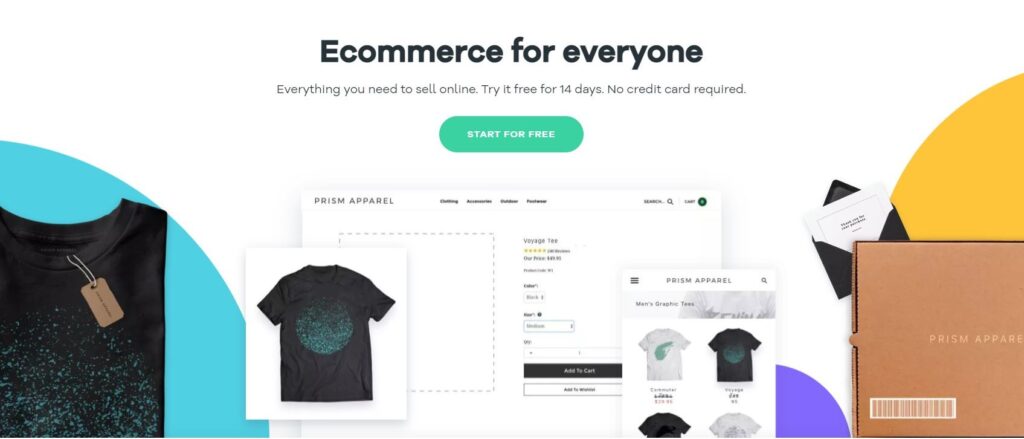
Volusion is an e-commerce platform equipped with tools for managing products, sales, and customer relationships, making it well-suited for small to medium-sized businesses.
Why Volusion Stands Out
- User-Friendly Interface: Volusion is known for its straightforward, simple interface, making it easy to manage your online store.
- Customizable Templates: You can easily customize the look of your store with its wide range of templates.
- SEO Tools: Offers SEO tools to help optimize your store and increase organic traffic.
Drawbacks
- Higher Transaction Fees: Volusion charges higher transaction fees than some competitors.
- Limited App Marketplace: Its app marketplace is smaller than other platforms, which could limit your options for adding advanced features.
11. OpenCart
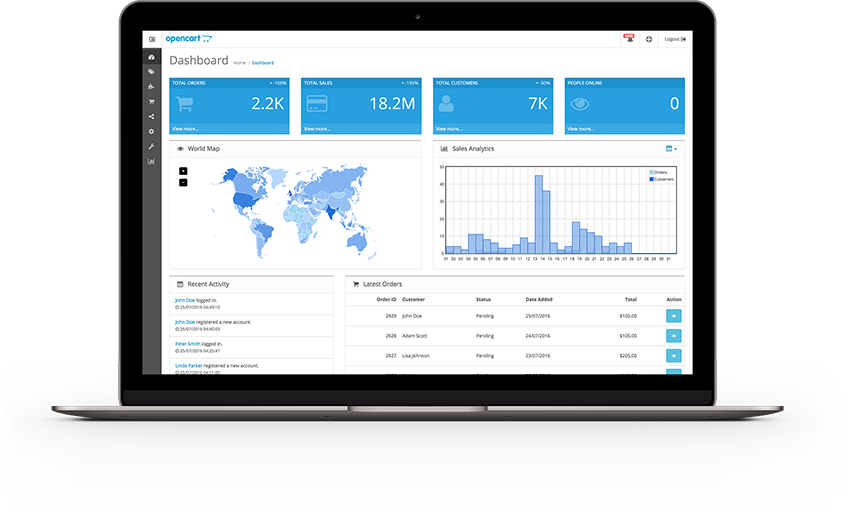
OpenCart is a flexible and highly customizable open-source e-commerce platform, making it a cost-effective choice for businesses in need of tailored solutions.
Why OpenCart Stands Out
- Free and Open-Source: OpenCart is free to download and use, with no licensing fees. Its marketplace offers extensive customization options.
- Multi-Store Management: OpenCart allows you to manage multiple stores from a single OpenCart installation, which is perfect for businesses with various brands or markets.
- Extensive Extensions: Offers a large marketplace for extensions, allowing businesses to add functionality as needed.
Drawbacks
- Technical Setup: OpenCart requires technical expertise to install and maintain, which may be a barrier for beginners.
- Limited Support: Because it is open-source, it lacks dedicated support, which means you might need to rely on forums or third-party support.
What Makes the Best E-commerce Platform?
When evaluating the best e-commerce platform, looking beyond just the basics of selling online is essential. An excellent e-commerce platform should encompass several key features to ensure your business thrives. These include:
Ease of Use
A user-friendly interface is essential. Whether you’re a tech expert or a beginner, the platform should simplify setting up your online store. Look for intuitive navigation, drag-and-drop functionality, and clear instructions that guide you through building and managing your site.
Scalability
Your business will grow, and so should your e-commerce platform. The best platforms offer flexible solutions that scale with your company. They should be able to handle higher traffic, more extensive inventories, and more complex operations as you expand.
Strong Customer Support
Good customer service is crucial for solving problems quickly. The platform should provide dependable support across multiple channels, such as email, live chat, and phone, ensuring assistance is always accessible.
Powerful Marketing and SEO Tools
Attracting visitors to your store is just as important as building it. The right platform will include built-in marketing tools like email campaigns, promotional features, and strong SEO capabilities. These strategies boost search engine visibility and enhance your chances of converting visitors into customers.
Integration with Payment Gateways
Multiple payment options are essential for enhancing the shopping experience and improving sales. Your e-commerce platform should integrate smoothly with various payment gateways like PayPal, Stripe, or credit card processors, ensuring customers can easily transact using their preferred method.
Security Features
Security is a priority for both you and your customers. The platform should offer SSL certification, secure payment processing, and protection against fraud to build trust and ensure safe transactions.
Mobile Compatibility
As more people shop on mobile devices, your e-commerce platform must provide mobile-optimized designs. This allows customers to seamlessly browse and make purchases from their smartphones or tablets.
Customization Options
Your platform should allow you to tailor the store’s design, layout, and features to fit your brand’s unique identity. Look for platforms with a wide range of templates and customizable options that help you stand out in the crowded e-commerce.
Types of E-commerce Platforms
E-commerce platforms come in various types, each catering to different business needs. Here are the main types:
SaaS (Software-as-a-Service) Platforms
These cloud-based solutions handle all aspects of e-commerce, from website creation to payment processing and security. Examples include Shopify, BigCommerce, and Wix. They are user-friendly, scalable, and perfect for businesses that don’t want to manage technical details.
Open-Source Platforms
These platforms allow businesses complete control over customization and functionality. However, they require technical expertise. Examples include WooCommerce and OpenCart. They are highly flexible and often accessible but come with additional costs for hosting and development.
PaaS (Platform-as-a-Service)
Platforms offer a middle ground between SaaS and open-source solutions. They provide more customization than SaaS while managing the infrastructure. Examples include Adobe Commerce and Commercetools.
CaaS (Commerce-as-a-Service) Platforms
A newer model that allows businesses to integrate e-commerce features directly into their existing infrastructure. This model focuses on delivering e-commerce capabilities through APIs.
Each platform type has its pros and cons, so the best choice depends on your business’s size, technical skills, and goals.
Best E-Commerce Platform: Final Words
When choosing the best e-commerce platform for your business, it’s important to consider more than just the features—it’s also about future-proofing.
Your platform should meet your current needs and support your business as it grows. It should be scalable and able to adapt to new trends and technologies.
For example, as customer expectations change, you might want to offer services like subscriptions, personalized shopping, or AI-driven recommendations. An effective platform will seamlessly integrate these new technologies, keeping you ahead of the competition.
Another important factor is data. Look for a platform that gives you detailed analytics to understand customer behavior, improve your sales funnels, and optimize your marketing strategies. This will help you make smarter decisions about what’s working and what needs improvement.
Related:
We empower people to succeed through practical business information and essential services. If you’re looking for help with SEO, copywriting, or getting your online presence set up properly, you’re in the right place. If this piece helped, feel free to share it with someone who’d get value from it. Do you need help with something? Contact Us
Want a heads-up once a week whenever a new article drops?







